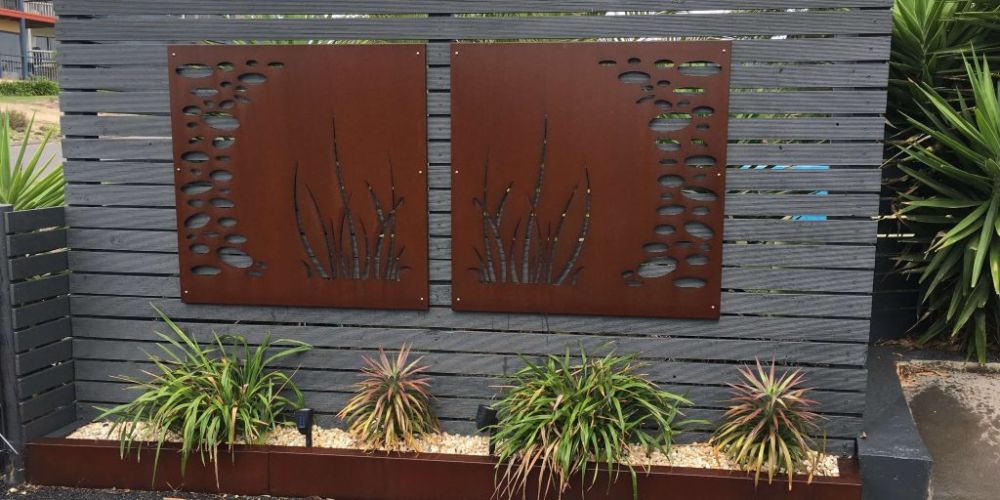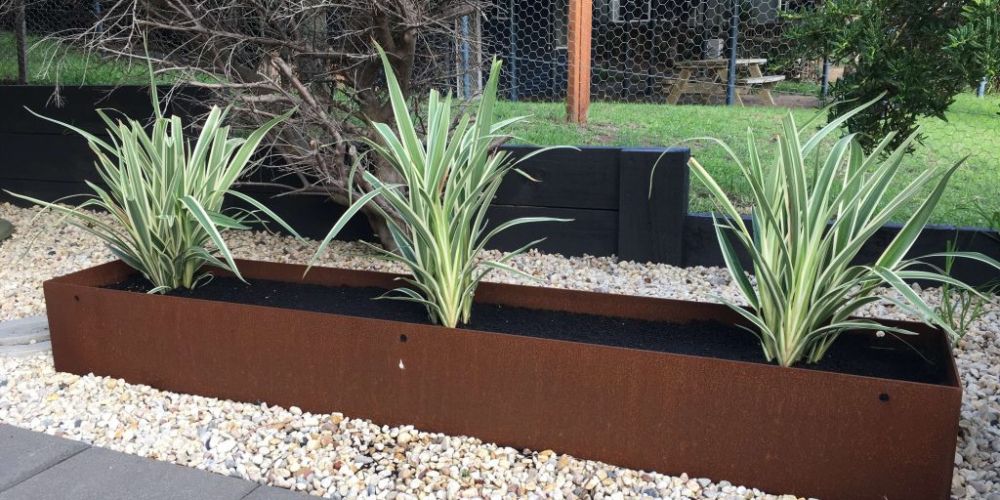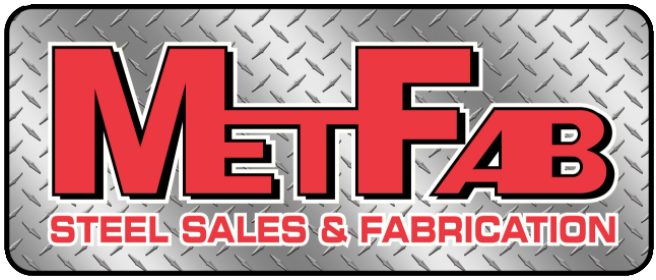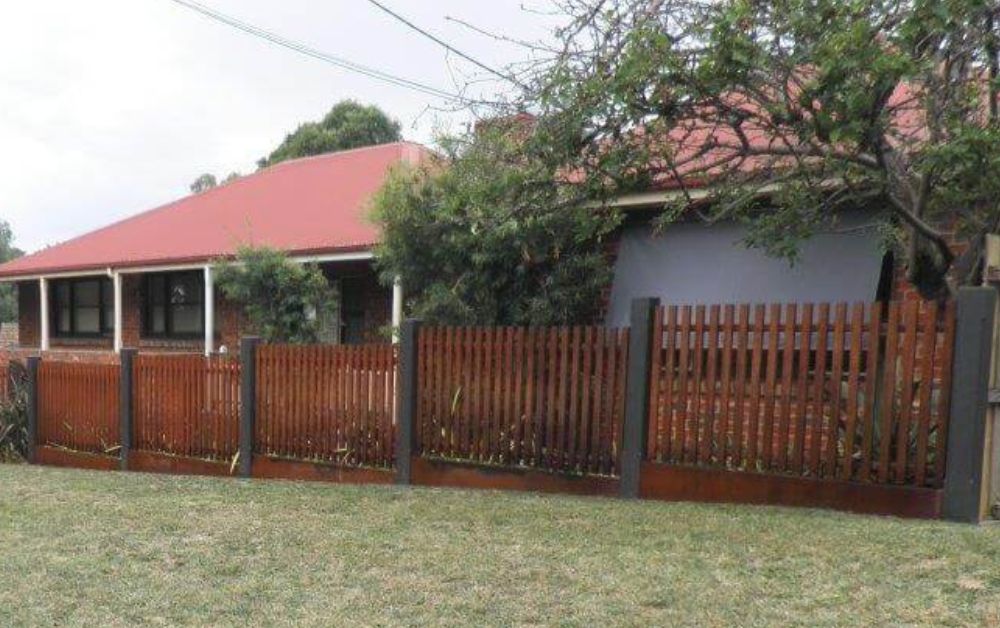Corten Steel vs Traditional Steels: Pros and Cons on Metal Fabrications
Metal fabrications are essential in several sectors, from building and construction to art and design. The finished result's performance, durability, and aesthetic appeal are significantly influenced by the type of steel utilised in these fabrications. Corten steel is one material that has seen significant growth in popularity and interest.
Let us explore the distinctive characteristics of Corten steel vs other steel materials to understand better what makes this unique.
What is a Corten Steel?
Corten steel, often known as weathering steel, is a steel alloy recognised for its distinctive worn look and high durability. It is mostly made of iron, with trace quantities of copper, chromium, and nickel added to improve its weathering qualities.
Corten steel has distinct properties that distinguish it from ordinary steel. Because of its unusual aged look and outstanding endurance, Corten has caught the imagination of architects, designers, and metal fabricators worldwide.
Properties of a Corten Steel
Corten steel has several important qualities contributing to its distinct characteristics and general use in various applications. Corten steel has the following important properties:
Weather Capability
Corten steel's tendency to weather or oxidise when exposed to the elements is one of its distinguishing characteristics. This procedure creates a protective coating of rust-like patina on the surface as a barrier against future corrosion. Corten steel's weathering ability increases its resistance to air corrosion, making it ideal for outdoor applications.
Corrosion Protection
Corten steel is resistant to atmospheric corrosion, including rain, snow, humidity, and airborne contaminants. The rust-like patina on the surface works as a protective layer, preventing deterioration of the underlying steel. This corrosion resistance reduces the need for extra protective coatings, resulting in lower maintenance requirements and expenses.
High strength
Corten steel is a structurally strong material due to its high tensile strength. Its strong load-bearing characteristics allow it to be used in various architectural and structural applications. Corten steel's strength enables the building of stable structures.
Durability
Corten steel is noted for its outstanding longevity due to its weathering ability and corrosion resistance. It can endure tough climatic conditions such as high temperatures, UV radiation, and saltwater environments. Corten steel is appropriate for bridges, building facades, outdoor sculptures, and landscape features due to its endurance.
Easy to Maintain
Corten steel's natural rust-like patina is a self-protecting coating, greatly lowering the requirement for continuous care. Unlike ordinary steel, Corten steel does not require frequent painting or coating to retain its corrosion resistance. This low-maintenance feature makes it an appealing alternative for applications requiring long-term upkeep.
Aesthetic Appearance
Corten steel's distinct look is widely regarded for its aesthetic appeal. The rust-coloured patina lends character and aesthetic interest to buildings and art installations with its warm and earthy tones. Corten Steel's worn look blends naturally and harmoniously with outdoor landscapes and architectural designs.

Downsides of a Corten Steel
Initial Price
Corten steel could be more expensive at first than certain conventional steel. Its distinctive qualities and ability to withstand the elements contribute to its premium price point.
Availability
Corten steel may be harder to find than other kinds of steel. It may take more time and money to source corten steel, depending on the area and the project's needs.
Considerations for Design
Corten steel's unusual appearance might only work with some designs or architectural styles. Its aged look might need to meet some project specifications or customer preferences.
Limited Use in Extremely Corrosive Environments
Although corten steel has great corrosion resistance, it might not be appropriate for very corrosive situations, such as coastal regions with a lot of exposure to seawater. Additional safeguards or other steel alternatives could be required in such circumstances.
Material testing
It is essential to conduct material testing to ensure that the raw materials used in metal fabrication fulfil the requirements and standards. Mechanical qualities, chemical composition, and other material attributes can be ascertained through procedures for testing materials, including tensile testing, hardness testing, and chemical analysis. Material testing is crucial to ensure that the finished goods have the specified characteristics and are appropriate for their intended uses. By evaluating the raw materials, manufacturers may ensure their goods satisfy the quality and are free from any material flaws or inconsistencies.

Corten Steel vs Other Types of Steels: Comparison
Several elements come into play when comparing corten steel to other types of steel, such as carbon steel and stainless steel. In terms of important aspects, below is a comparison of corten steel with other steels:
Corrosion Resistance and Weathering Capability
- Steel Corten: Because of the formation of a protective rust-like patina, corten steel has exceptional weathering and corrosion resistance. It is resistant to weather conditions, making it appropriate for outdoor applications.
- Carbon Steel: Carbon steel is prone to corrosion and must be maintained regularly to avoid rust growth. It lacks corten steel's intrinsic corrosion resistance.
- Stainless Steel: Because of the presence of chromium, stainless steel has high corrosion resistance but does not acquire a protective patina like corten steel. It may require cleaning and maintenance regularly to preserve its corrosion resistance.
Durability and Strength
- Steel Corten: Corten steel is structurally strong due to its high tensile strength. It offers long-lasting performance and durability.
- Stainless Steel: Carbon steel is strong but may not be as durable as corten steel. It may require protective coatings or treatments to improve corrosion resistance and longevity.
- Steel, stainless: The strength of stainless steel varies based on the alloy composition. It is typically robust and resistant to mechanical pressures. However, it may be weaker than corten steel.
Aesthetic Value
- Steel Corten: Corten steel is prized for its distinct worn look. The rust-like patina adds a particular aesthetic appeal, giving the piece a natural and rustic appearance.
- Carbon Steel: Carbon steel has a simple, metallic look and does not have the worn aspect of corten steel.
- Stainless Steel: Stainless steel seems shiny and reflective. It has a contemporary and sleek appearance but lacks the unique worn appearance of corten steel.
Cost
- Corten Steel: Despite having a greater starting cost than carbon steel, corten steel might be more affordable in the long run due to its durability and little maintenance needs.
- Carbon Steel: Regarding initial purchase and manufacturing expenses, carbon steel is often less expensive than corten steel. Costs of continuous maintenance, however, should be taken into account.
- Stainless Steel: Due to its more expensive raw materials and complex production needs, stainless steel is frequently more expensive than corten steel and carbon steel.
FREQUENTLY ASKED QUESTIONS
Conclusion
Corten steel is a popular metal fabrication material because of its unique features, which include weather resistance, corrosion resistance, aesthetic appeal, durability, and strength. Its propensity to produce a protective rust-like patina extends its lifespan. It minimises the need for continuing care, resulting in long-term cost savings.
Corten steel is appropriate for outdoor constructions that require durability and weather resistance, and it lends a natural and beautiful appearance to architectural designs and sculptures. While it has a greater starting cost than typical steel and is unsuitable for severely corrosive conditions, its benefits frequently exceed these disadvantages. Overall, corten steel is a popular metal fabrication material due to its appealing mix of utility, aesthetics, and durability.


